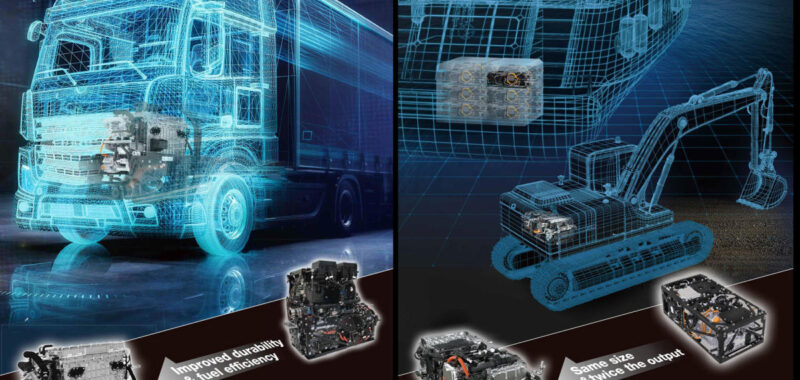Despite the obvious benefits of electric cars, Toyota spent the last decade insisting hydrogen would win out in the end. But, as the company announces its third generation fuel cell system, you can tell it’s finally ready to tacitly admit defeat: the new cell is designed for industrial applications, where hydrogen clearly always made more sense.
The new cell is designed to meet the “particular needs of the commercial sector,” focusing on durability equal to a diesel engine. It’s a lot more fuel efficient, cheaper to make and outputs twice as much power while sitting in the same footprint as the second-generation model. Given Toyota’s love of shrinking its engine technology, that size wasn’t a factor here is enormously telling of where it envisions these cells being used.
Toyota could never make the economic or technological argument for hydrogen cars as a better option than electricity (the Mirai, Toyota’s flagship hydrogen EV, has managed to sell just 28,000 models since its 2014 birth). But for heavy duty vehicles, where battery weight and power are more pressing concerns, hydrogen’s flaws turn into assets. Trucks, construction vehicles, trains, ships and backup generators — less at risk from the lack of general-purpose hydrogen infrastructure — are welcome homes for fuel cells.

